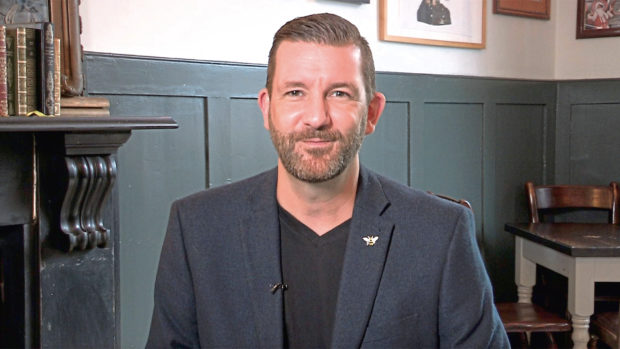
Martyn James is a TV consumer expert who has helped people across the nation face up to and resolve their financial headaches.
Here the money guru tells Sally McDonald how to avoid a post-Christmas spending panic and get back on financial track for the new year.
Why do the excesses of Christmas and Hogmanay feel especially bleak in January?
January is a long month. Many of us were paid a week earlier than usual as a Christmas perk from employers – but it’s easy to forget this money needs to stretch over five weeks to the next payday. The knock-on effect can impact on the next few months, as people borrow to offset money they’ve already spent.
Before you tackle your spending, look at how much cash you’ve got left over. Check your direct debits and standing orders, so you know what else is due to come out of your account.
Lots of us also have regular payments for subscriptions, streaming sites and other outgoings. Ask your bank for a statement from January last year – so you can see if there are any annual payments due that you might have forgotten about.
What can be done about spending mistakes, the things we shouldn’t have bought – or is it better to just not think about them now the deed is done?
Be honest about your spending. Don’t be in denial about the cost of Christmas. If you’ve got spending regrets, see if there’s anything that you can return or cancel.
Consumers have a 14-day cooling-off period where they can cancel goods and services bought online without charge.
What’s the secret to regaining financial control?
If you’re in the red, or you’ve spent more than you thought, don’t panic. Knowing there’s a problem is the first step to dealing with it. Give yourself time to sort the situation out. Work out how much money you need to get through comfortably to the next payday, and compare it with what you have left.
It may be tempting to use high-cost short-term credit, such as a payday loan – but this could cost a lot in the long-run.
Try speaking to your bank to see if they can give you a temporary overdraft for a month – some banks offer customers a small interest-free overdraft “buffer”.
If you don’t meet your bank’s criteria for credit, tell them about your situation. If you explain you’re having difficulties, your bank should try to help, not make the situation worse. Those in serious debt could also contact businesses they make regular payments to and ask them if they’ll accept a lower payment for a short while, or spread the outstanding debt over future payments.
Is there any clever way to claw back cash?
It’s a good idea to make sure you’re not duplicating payments – such as paying old insurance premiums that provide similar cover to newer ones. If you’re accidentally paying for the same service with two businesses, try asking for a refund.
Remember: if you don’t ask, you don’t get.
Christmas mistakes often occur with businesses – from wrongly credited transactions to errors with energy bills. You may find your boiler plan isn’t worth the paper it’s written on when the weather turns and it packs in.
Many people give up on making a complaint because the process can feel frustrating or seems like too much work.
It doesn’t have to be. Resolver, a complaints website, can help you sort out complaints for free – whether they’re yours or those of a friend or relative. Help is also available from charities such as StepChange and Citizens Advice. And the Financial Ombudsman Service can help with complaints about financial firms.
Is there any way of protecting credit scores from the impact of Christmas-induced debt?
From time to time, people from a variety of walks of life can find themselves struggling to make ends meet – even those who are “asset rich” – where you have a home and job but aren’t earning enough to pay for it all.
If you speak up early, before you start missing payments, you’ve got more chance of preserving your credit rating, while finding a solution to get you back on top of your finances.

Enjoy the convenience of having The Sunday Post delivered as a digital ePaper straight to your smartphone, tablet or computer.
Subscribe for only £5.49 a month and enjoy all the benefits of the printed paper as a digital replica.
Subscribe